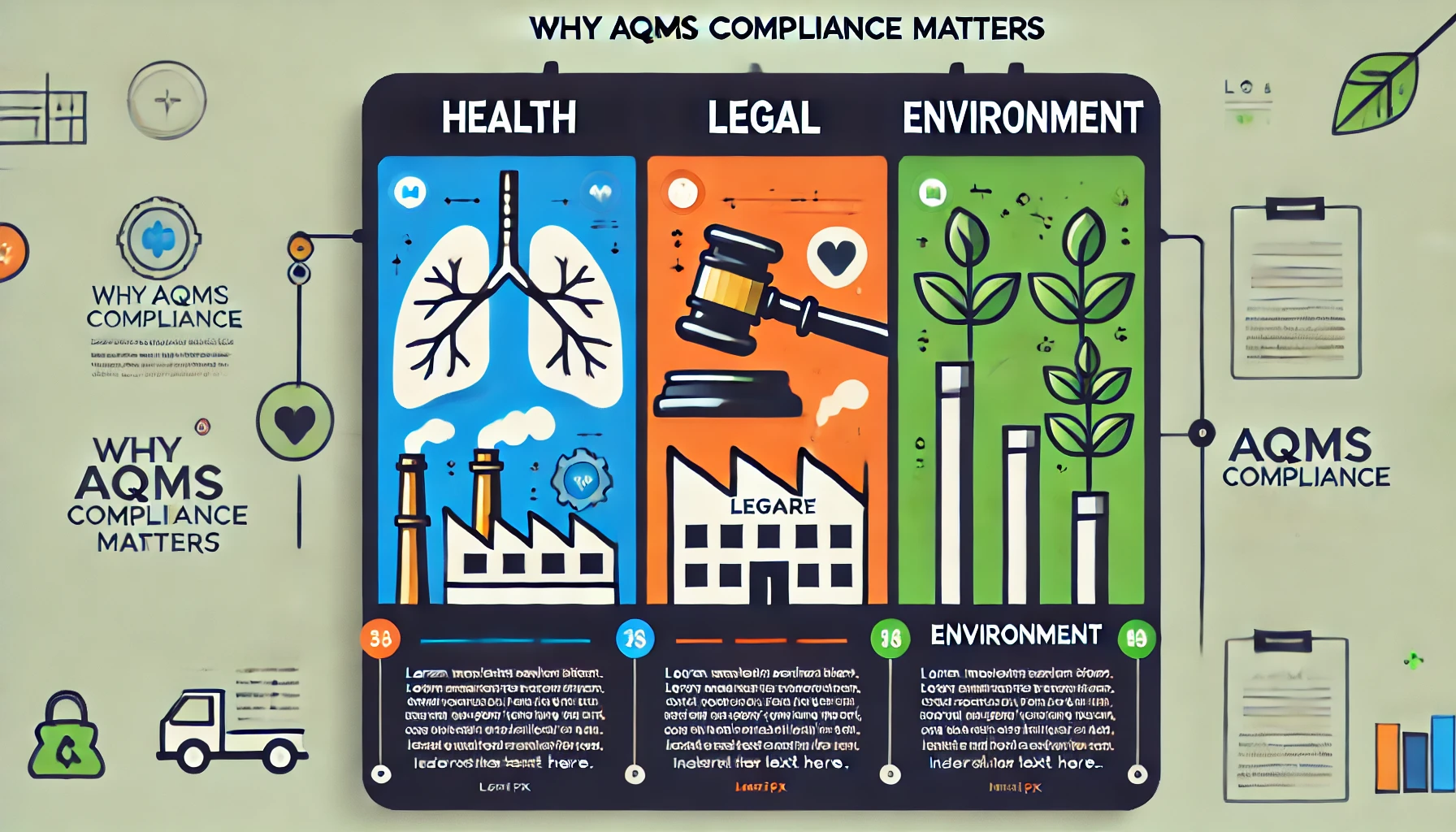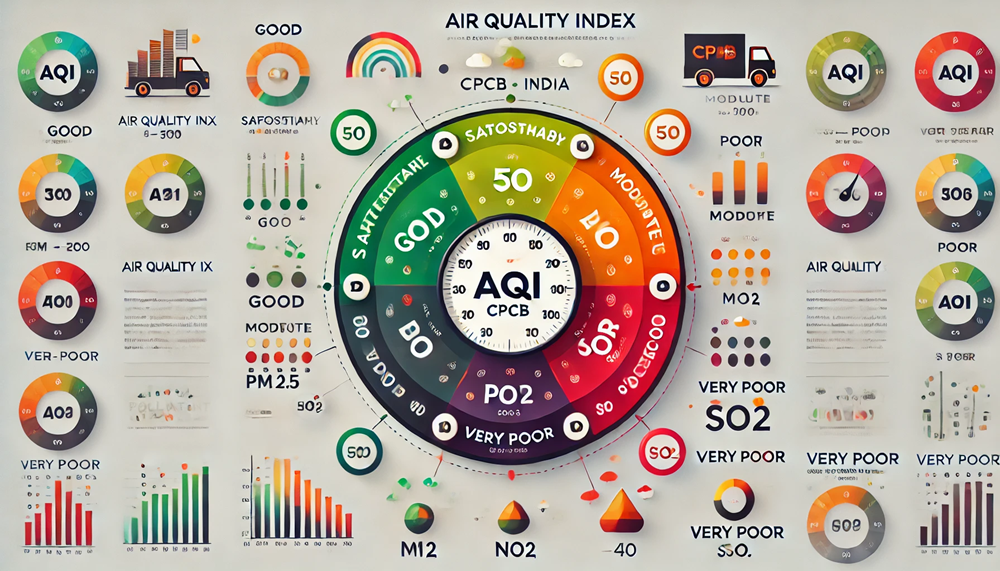Why AQMS Compliance is Crucial for Construction Sites
Published: April 26, 2025 | By Team Sathicorp AQMS

Introduction
Urban air quality is under increasing threat, especially near large construction zones. The Bombay High Court’s Suo Moto PIL 3/2023 directed civic bodies like BMC to enforce AQMS (Air Quality Monitoring System) deployment. Compliance is no longer optional — it’s mandatory and monitored.

What is AQMS and Why Does it Matter?
AQMS (Air Quality Monitoring System) uses sensors to track PM2.5, PM10, CO2, noise, humidity, and temperature in real-time. Its importance lies in three critical areas:
- Health Impact: Protects workers and nearby residents from harmful dust and pollutants.
- Legal Mandate: Required under BMC’s AQMS compliance rules.
- Environmental Impact: Encourages proactive pollution management and public transparency.
What Happens If You Don’t Comply?
Non-compliance isn’t just risky — it’s expensive:
- Hefty fines and project delays
- Work stoppages by civic authorities
- Loss of reputation and blacklisting
Sites across Mumbai have already been penalized or shut down for lacking certified AQMS systems.

How to Stay Compliant
- Select a BMC-approved AQMS system (certified sensor + display).
- Install the unit with real-time display and data logging.
- Ensure AQI, PM10, and PM2.5 values are visible onsite.
- Keep logs ready for audits and upload to central servers if required.
Download the BMC Compliance Checklist
Ensure you're 100% ready and avoid penalties. Download our verified checklist to guide your AQMS setup
Download Checklist